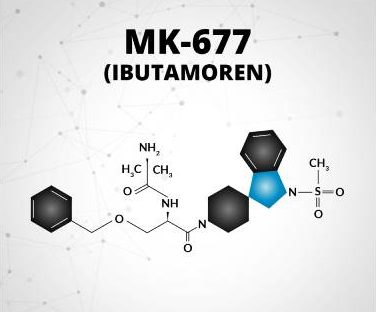5% OFF FIRST ORDER WITH CODE FRST5 AT CHECKOUT!
The Benefits of Berberine on a Diet: Weight Loss, Blood Sugar Control, and More

The Benefits of Using Berberine on a Diet: A Comprehensive Guide
Berberine, a powerful compound found in several plants, has become increasingly popular as a dietary supplement. Its rise in popularity is due to its potential health benefits, particularly for those on a diet or looking to manage their weight and metabolic health. With its long history of use in traditional medicine, berberine is now being studied extensively for its potential to aid in weight loss, improve insulin sensitivity, and promote overall health.
In this blog post, we’ll delve into the benefits of berberine on a diet, its mechanisms of action, how to use it safely, and its potential side effects. Whether you’re looking to manage your weight, regulate blood sugar levels, or improve your overall well-being, understanding how berberine works could be an important addition to your dietary strategy.
What is Berberine?
Berberine is a natural alkaloid found in a variety of plants, including Berberis species (barberry), Coptis chinensis (goldthread), and Hydrastis canadensis (goldenseal). It has been used in traditional Chinese and Ayurvedic medicine for centuries, primarily for its antimicrobial, anti-inflammatory, and anti-diabetic properties. In recent years, research has shed light on how berberine can influence various metabolic processes, making it a popular supplement for those on a diet or looking to optimize their health.
Berberine works by interacting with several key biological pathways that regulate metabolism, glucose levels, and fat storage. This makes it particularly appealing for individuals looking to lose weight, manage blood sugar levels, and reduce the risk of metabolic disorders like type 2 diabetes and obesity.
How Does Berberine Work?
One of the most fascinating aspects of berberine is its multi-faceted mechanisms of action. It affects several pathways in the body that are crucial for maintaining metabolic balance, including:
1. Activation of AMPK (Adenosine Monophosphate-Activated Protein Kinase)
AMPK is often referred to as the "master metabolic switch." It plays a central role in regulating energy homeostasis by promoting energy expenditure and inhibiting fat storage. When AMPK is activated, cells take up more glucose from the bloodstream, increase fat oxidation, and reduce the synthesis of fatty acids and cholesterol.
Berberine is a potent activator of AMPK, which is why it’s associated with improved metabolic health. When AMPK is activated, the body becomes more efficient at using energy, which can contribute to weight loss and improved insulin sensitivity.
2. Improvement of Insulin Sensitivity
Insulin is a hormone that plays a critical role in regulating blood sugar levels. When the body becomes resistant to insulin, it struggles to move glucose into cells, leading to high blood sugar levels and an increased risk of type 2 diabetes.
Berberine has been shown to improve insulin sensitivity by helping cells take in glucose more effectively. This can be especially beneficial for individuals with insulin resistance or prediabetes. Improved insulin sensitivity not only aids in blood sugar regulation but also supports weight management, as insulin resistance is often linked to obesity.
3. Reduction of Blood Sugar Levels
For individuals with high blood sugar levels, berberine has been found to be as effective as some pharmaceutical drugs in lowering glucose. It works by several mechanisms, including inhibiting the production of glucose in the liver (gluconeogenesis) and increasing glucose uptake in muscle cells.
Several studies have compared the effects of berberine with metformin, a commonly prescribed drug for managing type 2 diabetes. In these studies, berberine demonstrated comparable effects in lowering blood sugar, making it a promising natural alternative for glucose management.
4. Regulation of Gut Microbiota
Emerging research suggests that berberine may also exert its effects by altering the composition of gut microbiota. A healthy gut microbiome plays a vital role in regulating weight, digestion, and immune function. Imbalances in gut bacteria have been linked to obesity and metabolic disorders.
Berberine has been shown to promote the growth of beneficial gut bacteria, such as Akkermansia muciniphila, which is known for its role in maintaining gut barrier function and promoting metabolic health. By improving gut health, berberine may support weight loss and reduce inflammation associated with obesity and metabolic disorders.
5. Reduction of Inflammation
Chronic inflammation is often linked to obesity and metabolic disorders, including type 2 diabetes. Berberine has anti-inflammatory properties, which may contribute to its ability to improve metabolic health and support weight loss. By reducing inflammation, berberine can also promote overall well-being and reduce the risk of chronic diseases.
Berberine’s Role in Weight Loss
One of the primary reasons people turn to berberine is its potential to aid in weight loss. While berberine is not a magic bullet, it can play a supportive role in a comprehensive weight management plan. Here’s how:
1. Increased Fat Burning
By activating AMPK, berberine helps the body become more efficient at burning fat. AMPK stimulates the breakdown of fatty acids, which can lead to a reduction in body fat over time. In addition, berberine may help prevent the accumulation of new fat cells, further supporting weight loss efforts.
2. Reduction of Fat Storage
Berberine not only helps burn fat but also reduces fat storage. It inhibits the expression of genes that are involved in lipogenesis, the process of creating new fat cells. This dual action makes berberine a powerful tool for those looking to reduce body fat and maintain a healthy weight.
3. Appetite Regulation
While berberine's effects on appetite are still being studied, some research suggests that it may have a mild appetite-suppressing effect. This could be beneficial for individuals who struggle with overeating or cravings while on a diet.
4. Improved Insulin Sensitivity
As mentioned earlier, improved insulin sensitivity can lead to better regulation of blood sugar levels, which is critical for weight management. When insulin sensitivity improves, the body is better able to use glucose for energy, rather than storing it as fat.
5. Regulation of Blood Sugar Levels
Stable blood sugar levels are key to preventing hunger and cravings, which are often driven by spikes and crashes in glucose. By regulating blood sugar levels, berberine can help prevent the intense cravings that lead to overeating, making it easier to stick to a healthy diet.
Berberine’s Impact on Blood Sugar and Diabetes Management
Berberine's most well-researched benefits are in the realm of blood sugar management and diabetes prevention. For individuals with type 2 diabetes, prediabetes, or insulin resistance, berberine may offer significant benefits.
1. Comparable to Metformin
Several studies have shown that berberine is as effective as metformin in lowering blood sugar levels. It works by reducing glucose production in the liver and increasing insulin sensitivity, which helps cells use glucose more effectively. For individuals who are looking for a natural alternative to pharmaceutical drugs, berberine could be a valuable option.
2. Reduction of HbA1c Levels
HbA1c is a measure of long-term blood sugar control, and elevated levels are a marker of poor glucose management. Berberine has been shown to reduce HbA1c levels, indicating that it can help improve overall blood sugar control over time. This is particularly beneficial for individuals with type 2 diabetes or prediabetes, as lowering HbA1c can reduce the risk of complications associated with high blood sugar levels.
3. Post-Meal Blood Sugar Regulation
Berberine has also been found to reduce postprandial (after-meal) blood sugar spikes, which can be particularly challenging to manage. By improving glucose uptake in cells and slowing the absorption of carbohydrates in the gut, berberine helps maintain stable blood sugar levels throughout the day.
4. Prevention of Diabetes
For individuals at risk of developing type 2 diabetes, berberine may help prevent the onset of the disease. By improving insulin sensitivity, reducing blood sugar levels, and promoting weight loss, berberine can reduce the risk factors associated with type 2 diabetes.
Berberine and Cardiovascular Health
In addition to its benefits for weight loss and blood sugar management, berberine has been shown to improve various markers of cardiovascular health. This is particularly important for individuals with metabolic disorders, as they are at a higher risk of heart disease.
1. Reduction of LDL Cholesterol and Triglycerides
Berberine has been shown to reduce levels of LDL cholesterol (the "bad" cholesterol) and triglycerides, both of which are risk factors for cardiovascular disease. By lowering these markers, berberine may help reduce the risk of heart disease and improve overall cardiovascular health.
2. Increase in HDL Cholesterol
Berberine can also increase levels of HDL cholesterol (the "good" cholesterol), which helps remove excess cholesterol from the bloodstream and reduces the risk of plaque buildup in the arteries.
3. Improvement in Blood Pressure
Some studies have suggested that berberine may help lower blood pressure, particularly in individuals with metabolic disorders. By improving endothelial function (the function of the lining of blood vessels), berberine can help promote healthy blood pressure levels.
4. Reduction of Inflammation
Chronic inflammation is a major contributor to cardiovascular disease. Berberine's anti-inflammatory properties may help reduce the risk of heart disease by lowering inflammation and improving the health of blood vessels.
How to Use Berberine on a Diet
If you’re considering adding berberine to your diet, it’s important to understand how to use it effectively. Here are some tips for incorporating berberine into your routine:
1. Dosage
The most commonly recommended dosage of berberine is 500 mg, taken two to three times per day. It’s important to spread out the doses, as berberine has a short half-life and is metabolized quickly by the body. Taking berberine before meals can help regulate postprandial blood sugar levels.
2. Timing
For optimal results, take berberine before meals. This can help regulate blood sugar levels and improve digestion. Some people may experience mild gastrointestinal side effects, such as nausea or diarrhea, when starting berberine. If this occurs, it may help to start with a lower dose and gradually increase it.
3. Combine with a Healthy Diet
While berberine can support weight loss and metabolic health, it’s important to combine it with a healthy diet. Focus on a balanced diet rich in whole foods, including vegetables, fruits, lean proteins, and healthy fats. Reducing refined carbohydrates and sugars can further enhance the benefits of berberine.
4. Exercise
Regular physical activity is another key component of a healthy lifestyle. Exercise can improve insulin sensitivity, promote weight loss, and support overall well-being. Combining berberine with a consistent exercise routine can amplify its benefits.
Potential Side Effects of Berberine
While berberine is generally considered safe for most people, there are some potential side effects to be aware of:
1. Gastrointestinal Distress
Some people may experience digestive issues, such as nausea, diarrhea, constipation, or cramping when taking berberine. Starting with a lower dose and gradually increasing it can help minimize these side effects.
2. Interactions with Medications
Berberine may interact with certain medications, particularly those that lower blood sugar levels (such as insulin or metformin) and blood pressure medications. If you are taking any prescription medications, it’s important to consult your healthcare provider before starting berberine.
3. Not Recommended During Pregnancy
Berberine is not recommended for pregnant or breastfeeding women, as there is limited research on its safety in these populations.
4. Long-Term Use
The long-term effects of berberine supplementation are not well-studied. While it can be a valuable tool for improving metabolic health in the short term, it’s important to consult with a healthcare provider if you plan to use berberine for an extended period.
Conclusion
Berberine is a powerful natural compound with a wide range of potential health benefits, particularly for those on a diet or looking to improve their metabolic health. Its ability to activate AMPK, improve insulin sensitivity, regulate blood sugar levels, and support weight loss makes it a valuable tool for individuals with metabolic disorders, including type 2 diabetes and obesity.
While berberine is not a magic solution, it can play an important role in a comprehensive approach to health that includes a balanced diet, regular exercise, and other lifestyle factors. As with any supplement, it’s important to use berberine safely and consult with a healthcare provider if you have any underlying health conditions or are taking medications.
If you’re looking to optimize your health and support your weight loss journey, berberine may be a natural and effective option to consider. With its wide range of benefits and growing body of research, berberine is poised to become an essential supplement for anyone focused on improving their metabolic health.

 Polish
Polish





























Comments